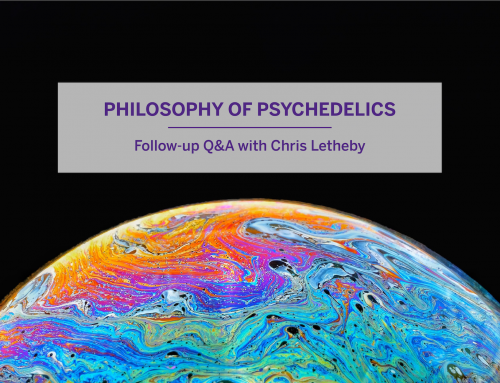In the lead-up to the release of the contribution of Working Group I (the Physical Science Basis) to the IPCC’s Fifth Assessment report (AR5), stories alleging that the state of climate science is in disarray are proliferating. If you read between the lines, there’s an air of desperation in these stories.
If you’re wondering who to believe, here’s a good rule of thumb. If a story about the AR5 mentions that there was an error in the AR4 report about the projected rate of glacier melting in the Himilayas, the author is conveying to you, clearly and unmistakeably: “I’m grasping at straws in my attempts to discredit the science.”
It seems an appropriate time to repost this, from last year.
June 18, 2012. A few weeks ago, I gave a talk at the annual meeting of the Canadian Society for the History and Philosophy of Science. The title was “On the Social Responsibility of Philosophers of Science.” The idea behind the talk was simple, as it pretty much had to be, given the time constraints. I wanted to talk about one way that philosophers of science, qua philosophers of science, can be said to have social responsibilities, and then open up the floor for comments from the audience about ways in which philosophers of science can do a better job at being socially responsible. I was hoping that in the audience there would be people who have been thinking about these things longer than I have, and it worked! In particular, Katie Plaisance of the University of Waterloo, whom I had never met, was there, and drew my attention to a special issue of Synthese which she co-edited with Carla Fehr (also at Waterloo), on the subject of Socially Responsible Philosophy of Science (Synthese 177 (3), 2010). This is a burgeoning area of interest in the profession (evidenced by a conference in Bielefeld just last week)
In my talk, I chose as my illustration the disinformation campaign surrounding climate science. Not long before my talk, climatologist James Hansen had published an editorial in The New York Times, asserting that, if Canada proceeds with exploitation of the oil sands, it’s “game over for the climate.” Clearly a matter of social relevance.
There are, of course, powerful economic forces driving exploitation of the oil sands and other petroleum resources, and opposing meaningful international agreements to limit carbon emissions. As is by now well-known, these have been aided by a disinformation campaign, sponsored by the petroleum industry and run, in part, by some of the same PR firms that orchestrated the disinformation campaign on the effects of second-hand smoke for the tobacco industry. (Detailed documentation can be found in the Union of Concerned Scientists’ publication, Smoke, Mirrors, & Hot Air. For an excellent overview of these campaigns, see Oreskes and Conway’s book, Merchants of Doubt; for a Canadian perspective, see Hoggan and Littlemore, Climate Cover-Up.)
A role responsibility is a responsibility that a person has by virtue of that person’s role in society. A number of climate scientists regard themselves as having a role responsibility to communicate with the public and with policy makers about climate science. For this reason, a group of climate scientists formed the blog Real Climate in 2004; more recently, an initiative called the Climate Science Rapid Response Team was formed to improve communication of climate science to the media and to government officials. There have also been a number of popular books written recently by climatologists on the subject of climate change. Other efforts involve videos.
If scientists have a social responsibility to communicate with the public and with policy makers, where does that leave philosophers of science?
In 1988, James Hansen and some other climatologists were already convinced that humans were having a discernible effect on the climate, but the evidence was such that reasonable, well-informed scientists could be skeptical. By 2007 the evidence was dramatically better, and the IPCC, a very conservative body, reported in its Fourth Assement Report (AR4), “Most of the observed increase in global average temperatures since the mid-20th century is very likely due to the observed increase in anthropogenic GHG [greenhouse gas] concentrations.” If one examines the evidential basis for this conclusion, what stands out is: there is no single study, no crucial experiment, no “smoking gun” that carries most of the weight. Rather, what we have is a gradual accumulation of evidence that works together. It is normal science (in Kuhn’s sense), par excellence.
On the other hand, a characteristic of the denialist campaign has been repeated attacks on individual studies, and an exaggeration of minor errors into would-be scandals.
Consider, for example, the so-called “Glaciergate.” What happened was: in the IPCC AR4, in the report of Working Group II, on Impacts, Adaptation, and Vulnerability (note, this was not the working group tasked with reporting on the physical science, which was WG I), there was a misstatement about how soon the Himalayan glaciers would disappear if current warming rates continued. It was an error, to be sure, but one that had little impact on the overall assessment, and, once the error was pointed out (by scientists from WG I, not skeptical bloggers), a correction was issued.
If you want to get a picture of the press response, Google “Glaciergate.” Or “Glaciergate scandal.”
There is a wry comment on the media response on the Real Climate blog:
To those familiar with the science and the IPCC’s work, the current media discussion is in large part simply absurd and surreal. Journalists who have never even peeked into the IPCC report are now outraged that one wrong number appears on page 493 [of 938] of Volume 2.
Why did this happen? Part of the answer is in the same blog entry; “And there are well-organized lobby forces with proper PR skills that make sure these journalists are being told the ‘right’ story.”
But think about the picture of science that one would have to have in order for this to seem like a major story in the first place. If reasoning from evidence to conclusions were a chain of arguments as strong only as its weakest link, then a single error could bring the whole thing tumbling down, like the house of cards that denialists like to pretend that climate science is. But that’s not how it works. Climatologists are highly skeptical of conclusions that lack a certain kind of robustness, in the sense of being supported by multiple lines of evidence. A better metaphor would be a tapestry, which remains largely intact if a single thread is removed.
It seems plausible that at least part of the success of the disinformation campaign rests on a misapprehension in the public and in the media about how evidence bears upon conclusions in science. If this is right, then this points to one (I don’t say the only one) social responsibility of philosophers of science. It is the job of scientists to do science, and it falls to philosophy of science to articulate scientific methodology. If scientists have a role responsibility to communicate the results of their work when these are relevant to public policy, then, surely, philosophers of science have a role responsibility to communicate about scientific methodology when this has bearing on the choices that society will make.
A few years ago, statistician Lenny Smith, who has done extensive work on climate modelling, said to me, over dinner at a conference, “It’s your fault.” Not me specifically; this was a plural “you,” meaning philosophers of science, and what he meant was: Philosophers of science have done a poor job in articulating and conveying to the public how scientific evidence bears on theory.
I think he’s right. In the literature on methodology of philosophy of science, one finds a recurring pattern.
1. An overly simplistic proposal is made.
2. Counterexamples and criticisms show that the simplistic proposal is inadequate.
The next step should be:
3. A more nuanced, adequate proposal is advanced.
But philosophers rarely seem to agree on how this works, and so we tend to get bogged down at the second step. The danger of this is that it can lead to unwarranted skepticism (delightfully parodied at fauxphilnews).
I think that Lenny is right that we haven’t done a good job of articulating scientific methodology. I think we can do better.





